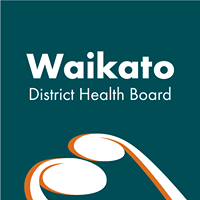Media Release
Date: 10 August 2007
Waikato Hospital
in Overload for Fourth Day in Row
Waikato Hospital is in overload today (Friday) for the fourth day in a row forcing health bosses to take drastic measures to free up beds.
The 650-bed Hamilton hospital has been running on 105-112 per cent occupancy since Tuesday. At 8am today, the hospital was at 102 per cent occupancy with 15 patients waiting in the Emergency Department.
More than 30 elective surgical cases requiring overnight stays have been cancelled, some day-case surgery has also fallen by the wayside so beds are available for emergencies and emergency department patients have been asked to consider seeing their general practitioners or health clinics first before adding to the hospital's load.
Waikato District Health Board nursing and clinical services service manager Hayley McConnell today said the meltdown had been unrelenting.
High numbers of patients had presented themselves this week at the emergency department - up 14 per cent on August's usual average 145-a-day. The increases were coming from respiratory presentations in both children and adults but were not all flu-related symptoms, she said.
There had also been an "across the board" increase in the number of people with broken or strained limbs.
"On top of that we've got our own staff who are sick and the ones that are on duty are increasingly under stress," she said. "Times like this take their toll on everyone - on patients, doctors, nurses and their families."
Part-time and casual staff have been asked to work extra hours to cope with demand.
Feeder hospitals in the Midland and Waikato region - Whakatane, Lakes, Tauranga, Thames, Tokoroa and Rotorua - have been told Waikato is in overload, she said.
As a tertiary hospital, Waikato has to accept emergency referrals from Midland hospitals.
But delays have been put on non urgent inter-hospital transfers and staff have been deployed into the emergency department and inpatient areas where possible.
"The message to the public is please save our Emergency Department for emergencies," said Ms McConnell.
Often a general practitioner could offer a quicker consultation without the need to attend hospital.
"We want to be able to focus our Emergency Department resources on patients who genuinely need hospital-level care," she said.
"Waikato still has the ability to cope with urgent presentations but for less urgent cases there may be a longer-than-usual wait.
"We ask the public to bear with us. We're all doing what we can to get through this but this is August - traditionally our busiest time - and it's going to be unrelenting for a few more days yet," she said.
Bullet
points:
Demand
- High numbers of presentations through the emergency department, approx. 14 % up. Now at an average 160 a day.
- Increase in respiratory presentations in both children and adults - not flu chest infections - Increase in orthopaedic trauma presentations - old young
Capacity
- 650 bed hospital - significant pressure on inpatient beds - hospital occupancy on average 105 - 112 % - occupancy includes patients in ambulances enroute or waiting to be transported to hospital - emergency department in overload since Tuesday - having to accept tertiary referrals from all Midland hospitals
Strategies
- Decrease elective demand through surgical cancellations requiring overnight stay - ear nose, general surgery - - Maintain day casing as able - day case includes cataracts, tonsils and gromits - Notification of overload status to referring hospitals (two other hospitals also at capacity e.g. Thames and Rotorua) - Delays placed on inter-hospital transfers - Deploy staff to emergency department as able - Staff working additional shifts to keep capacity up - part time and casual doing more hours
ENDS
www.waikatodhb.govt.nz



 School Library Association of NZ Aotearoa: Students Missing Out - New Research Exposes Alarming Disparities Across Aotearoa
School Library Association of NZ Aotearoa: Students Missing Out - New Research Exposes Alarming Disparities Across Aotearoa ANZCA: Health Reforms Raise Fears Of Two-Tier System And Workforce Shortages
ANZCA: Health Reforms Raise Fears Of Two-Tier System And Workforce Shortages Māpura Studios: A Matariki Exhibition At Historic Alberton House
Māpura Studios: A Matariki Exhibition At Historic Alberton House Doc Edge Festival: Finalists For The Doc Edge Awards 2025, an Oscar®-qualifying event
Doc Edge Festival: Finalists For The Doc Edge Awards 2025, an Oscar®-qualifying event Yachting New Zealand: 'A Win For The Squad' - Young 49er Team Strikes Gold At European Champs
Yachting New Zealand: 'A Win For The Squad' - Young 49er Team Strikes Gold At European Champs Michael King Writers Centre: Shilo Kino Awarded 2025 Shanghai Writing Residency
Michael King Writers Centre: Shilo Kino Awarded 2025 Shanghai Writing Residency